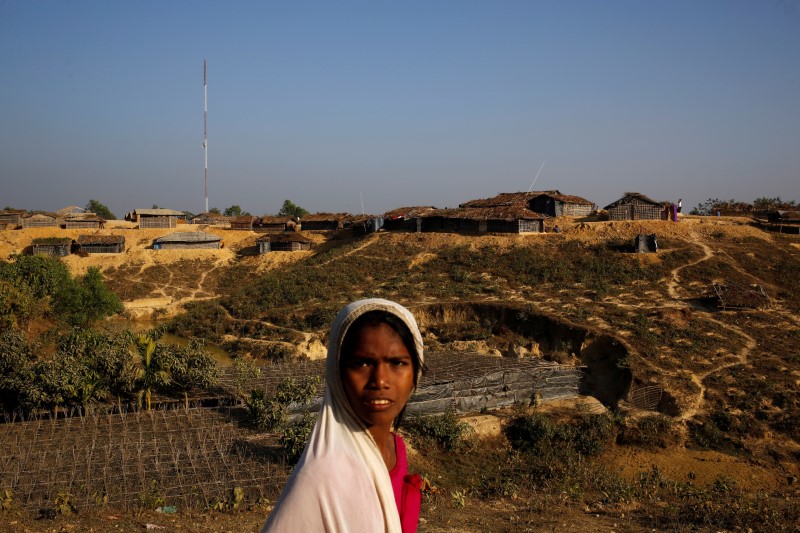By Wa Lone and Simon Lewis
YANGON (Reuters) - Myanmar should immediately start allowing Rohingya Muslims to return home and ultimately close rundown camps for the displaced in its western Rakhine state, a panel led by former U.N. chief Kofi Annan said on Thursday.
More than 120,000 people, mostly Rohingyas, have been living in what were intended as temporary shelters for internally displaced persons (IDPs) since bouts of communal violence roiled the state in 2012.
"We don't believe that the IDP camps are a natural state of things," panel member Ghassan Salame told reporters in Myanmar's business hub of Yangon.
Some people are stuck in camps meters from their former homes almost five years after being forced to move, he said.
Hundreds of displaced people, whose return home would be feasible and safe, should be moved back "immediately, as a first step and sign of goodwill," the panel said.
Annan was not present, but spoke briefly by video link.
The government had seen the panel's recommendations and was planning to issue a response, said Aye Aye Soe, a senior official in Myanmar's foreign affairs ministry.
The panel urged the government of Aung San Suu Kyi to reconsider a failed program to verify Rohinyas for Myanmar citizenship, and begin mapping the restrictions on movement by both Rohingya Muslims and their Buddhist neighbors in Rakhine.
Residents complain of a system of checkpoints in parts of the state and widespread extortion by officials at roadblocks.
Months after taking power last year amid a transition from decades of military rule, Suu Kyi appointed Annan in August to lead the advisory commission.
The nine-member panel was asked to propose solutions to the Rakhine State problems within a year, but put forward interim recommendations on Thursday that will test her commitment, questioned by many abroad, to improve conditions for Rohingya.
The work of the six Myanmar and three international commissioners was made more challenging in the early hours of Oct. 9, when armed Rohingya men launched coordinated attacks on border guard posts, killing nine police and seizing weapons and ammunition.
The commission called for an "independent and impartial" investigation into a subsequent crackdown by security forces in the northern part of Rakhine, but stopped short of backing calls for a full United Nations-led commission of inquiry.
About 1.1 million Rohingya Muslims are denied citizenship in Myanmar, with their movement and access to services restricted. Many in the Buddhist-majority country view them as unwanted immigrants from Bangladesh.
The government must restart registration of Muslims births in Rakhine, almost completely halted since 2012, the panel said.

"It is not natural in any country of the world that a newborn baby does not have a birth certificate," Salame added.